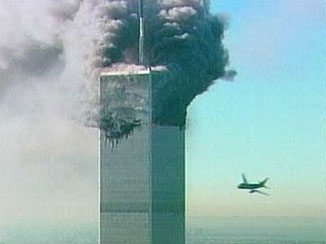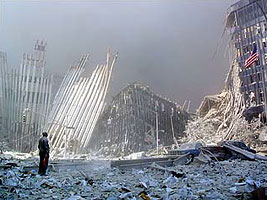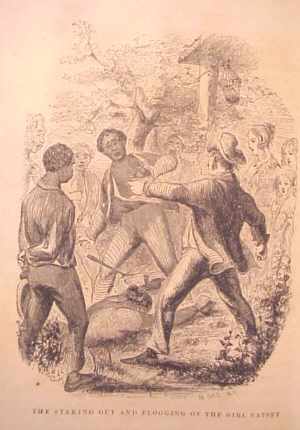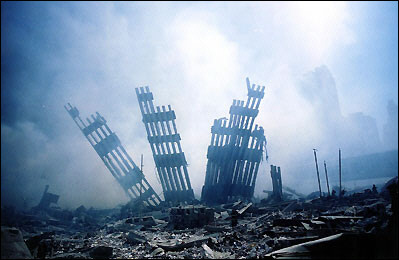Candles in the
Darkness: Of the Terrorist Attack on
By
Johnie H.
Scott
Associate
Professor of Pan African Studies

Key Concepts:
- Reflections
- Aftermath
- Daunting
- Excavating
- Bodycount
- Disproportionate
- Oppressive
- Gaze
- Passively
- Zero Tolerance
Reflections on the American temper in the aftermath of the terrorist
attack on the World Trade Center in New York City and the Pentagon in
Washington, D.C., delivered at the Performing Arts Center of the University
Student Union at CSU Northridge.
We
have come together this afternoon to share our thoughts on the present course
of action being taken by our nation in the aftermath of the horrible attack on
us last week that claimed more than 6,000 innocent lives. At the same time,
this is an opportunity to
pay our own tribute of respect to those who were murdered and
injured in
Bodycount: a word from the Sixties, from the Vietnam War where, each night, we
were given the casualties of the day for both American troops and the Vietcong.
The War where Black America comprise ten percent of
the nation’s population, but a highly disproportionate percentage of those
killed in action. The War where Muhammad Ali entered the pages of history when
he defiantly declared “The Viet Cong ain’t never called me a nigger,” that
statement costing that heavyweight title held by the man who up until then had
been known as the Louisville Lip, that same statement to follow him throughout
his years from the ring as he stood his grounds as a Muslim and a Black man,
that same statement to ripple through Black America like a Tsunami in echoing
the sentiments of so many hundreds of thousands.
The
War where Dr. Martin Luther King, Jr. would expand his vision from the
injustices of the racist American South and an equally oppressive North,
expanding his vision to take in this conflict that had so bitterly divided our
nation, doing so because it simply was no longer possible to deny the effects
of that War upon America, yes, but even moreso, Black America as it struggled
to come to grips with a country that professed freedom, liberty and justice for
all while still denying the most basic civil rights to its own citizens. There
are those who say and have written it was when this Nobel Peace Prize winner turned
his gaze upon
Speaking
before you today, I am reminded of another tragic moment in our nation’s
history when people from coast to coast came together in morning. It was
Speaking
at the funeral service for those little girls, Dr. King make note of what might
equally apply to those lives taken on September 11th: “These
children – unoffending, innocent, and beautiful – were the victims of one of
the most vicious and tragic crimes ever perpetrated against humanity.” Surely,
the same can be said for those who found themselves hijack victims and hostages
on those four airplane flights. No doubt, the same can be said for those
working in the Pentagon that morning. And without question, we can say of the
men, women and children who just happened to be in the
I
have been invited to, in the words of my colleagues and friends, share thoughts
that might go beyond the rattling of swords, the jingoism substituting for
patriotism, the murderous attacks on innocent people in our own country in the
aftermath, people slain because of their dress, their complexion, their
supposed religious difference in a country where the Founding Fathers themselves
came searching religious freedom.

I
see, all of us see, in my mind’s eyes the
I
look back to Dr. King’s words at that funeral service for those little girls,
words that were weighed very carefully as he spoke not just to television
cameras, not just to a curious America and the world, but even moreso, as he
spoke to the millions of African Americans who identified with and embraced
those children, thinking in their minds, our minds, of how they were in the
basement of 16th Street Baptist Church, going to Sunday School like
you and me and so many others.
“And
yet they died nobly,” Dr. King said that somber day.
“They
(i.e., their deaths) have something to say to a federal government that has
compromised with the undemocratic practices of southern Dixiecrats and the
blatant hypocrisy of right-wing northern Republicans. They have something to
say to every Negro who has passively accepted the evil system of segregation
and who has stood on the sidelines in the mighty struggle for justice. They say
to each of us, black and white alike, that we must substitute courage for
caution. They say to us that we must be concerned not merely about who murdered
them, but about the system, the way of life, the philosophy which produced the
murderers. Their death says to us that we must work passionately and
unrelentingly for the realization of the American dream.”
I
think of those words even as I reflect upon the emails shared with me by my own
students who lost friends and loved ones in New York, by other students
concerned with the mounting backlash and the question where do we go from here,
and by one of my students in particular whose letter I want to share with you
at this time. I received this on Wednesday, one day following the assault on
the
“Professor
Scott,
Due
to the tragic events that occurred on Tuesday in
I understand that there is a “ZERO TOLERANCE
policy for “late” submissions.” However I am hoping that you can make an
exception because of the unforeseen circumstance…As your syllabus stated I did
have access to a PC and I am able to check my mail remotely, but I failed to
bring my notes with me. However, I understand if you cannot accept this and I
am willing to take a zero for my mistake.
I really didn’t understand how it felt to be
discriminated against until the events that took place on Tuesday. Since I am a
Muslim from
“…We
must work passionately and unrelentingly for the realization of the American
dream.”
If
there is anything of value and substance I can bring to this meeting from the
African American Experience, it has to be the patience, tolerance, and
understanding that comes from many hard winters long endured. This is not the time
to turn against one another, to further victimize and demonize our neighbors
and fellow Americans. I have read where Osama bin
Laden is quoted to have said, “If you are a

My
ancestors were forcibly brought here against their will on the slave ships. They picked cotton til
their hands bled. They chopped sugar cane and picked tobacco. They bore the
lash and, in fact, were that strange fruit dangling from Southern trees that
one of our greatest, Billie Holiday, rendered in song. My grandfather, whose
name I bear as my middle name, was one of those. My people gave
Understanding
this doesn’t mean we are ready to nuke
If
not, then those men, women, and children died for nothing. The sacrifices you
and your own families have made in coming this far, going to college to get the
kind of education which will enable not only to make money but, much more
important, make a difference in the world, will have been for nothing.
Thank
you for inviting me. Thank you for listening. And God bless us all.

Discussion Questions:
1. What would you describe as
the tone of this statement? Why? What words serve as keys to determining the
tone?
2. What is the thesis of this
presentation?
3. What would be the three
primary ideas or patterns that the author uses to develop and support that
thesis?
4. Which of the following modes
or styles of discourse does the author draw upon to develop this statement:
description, narration, argumentation, persuasion? Give examples from the
presentation to support your choice(s).
5. In reading this statement,
what level audience do you think would most benefit from the thoughts
expressed? Why? What audience would benefit the least? Why?
6. What new insight(s) did
reading this give you in regards to the Terrorist attack on